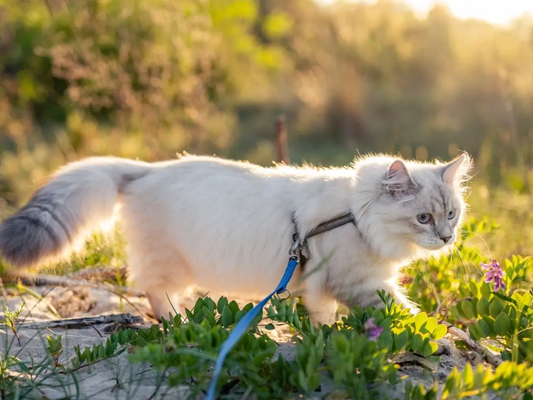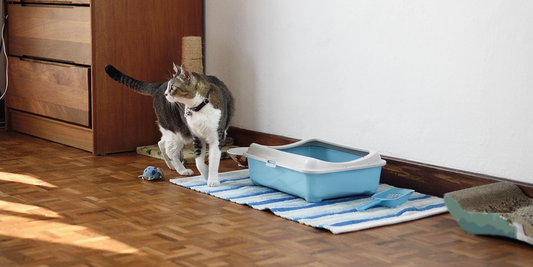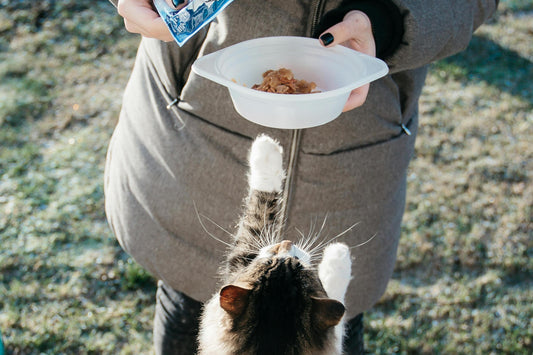If you're a cat owner, you know how essential it is to provide a clean and odor-free litter box for your feline friends. Traditional litter boxes can be a hassle to maintain, but self-cleaning cat litter boxes offer a convenient and hygienic solution. In this article, we will guide you through the process of choosing the perfect self-cleaning cat litter box for your cats, ensuring their comfort and your peace of mind.
How to Choose the Perfect Self-Cleaning Cat Litter Box for Your Cats?
1. Understanding Self-Cleaning Cat Litter Boxes
Before diving into the selection process, let's understand how self-cleaning litter boxes work. These innovative boxes are equipped with automatic mechanisms that scoop, rake, or sift the waste into a separate compartment, leaving a clean surface for your cats to use.
2. Consider Your Cat's Size and Needs
Every cat is unique, and so are their needs. Consider the size and breed of your cat when choosing a litter box. If you have multiple cats, opt for a larger box to accommodate them comfortably. Some cats may prefer covered boxes for added privacy, while others may feel claustrophobic.
3. Type of Self-Cleaning Mechanism
There are various types of self-cleaning mechanisms available. Rake-based systems are efficient for multiple cats, while sifting systems are suitable for clumping litter. Additionally, some models use infrared sensors to detect when your cat has used the litter box, triggering the cleaning process.
4. Litter Compatibility
Not all self-cleaning litter boxes are compatible with all types of litter. Some boxes work best with clumping litter, while others are designed for non-clumping litter. Be sure to check the manufacturer's recommendations and choose a litter that minimizes tracking and controls odors effectively.
5. Power Source and Noise Level
Self-cleaning litter boxes require a power source to operate the automated cleaning process. Consider the location of the litter box and the proximity to a power outlet. Additionally, check the noise level of the self-cleaning mechanism to ensure it doesn't scare your cats away.
6. Maintenance and Cleaning
While self-cleaning litter boxes reduce the frequency of scooping, they still require regular maintenance and cleaning. Look for models with easily removable waste compartments and consider how often you will need to empty and clean the box.
7. Durability and Build Quality
Investing in a durable and well-built litter box is essential for long-term use. Look for high-quality materials that can withstand your cat's scratching and digging without breaking or leaking.
8. Safety Features
Your cat's safety is of utmost importance. Choose a litter box with safety features such as automatic shut-off in case of a blockage, ensuring your cat's well-being at all times.
9. Budget Considerations
Self-cleaning litter boxes come in various price ranges. Set a budget and explore options that fit within your financial limits. Remember that a quality self-cleaning litter box is an investment in your cat's health and comfort.
10. Customer Reviews and Ratings
Before making a purchase, read customer reviews and ratings to gain insights into the performance and reliability of the litter box you are considering. Real-life experiences of other cat owners can be valuable in making an informed decision.
11. Trial Period and Warranty
Some manufacturers offer trial periods to test their litter boxes. Take advantage of these offers to see if the litter box suits your cat's preferences. Additionally, look for warranties that cover potential defects or malfunctions.
12. Space and Placement
Consider the available space in your home and choose a litter box that fits well in the designated area. The placement of the litter box is crucial, as cats prefer quiet and private spaces for their bathroom needs.
13. Introducing Your Cat to the New Litter Box
Once you've chosen the perfect self-cleaning litter box, introduce it to your cat gradually. Place some familiar litter inside and encourage your cat to explore the new box. Be patient during the transition period, and reward your cat for using the new box.
14. The Importance of Cleanliness and Hygiene
Regularly clean the litter box, even with the self-cleaning feature. Cats are fastidious animals and appreciate a clean environment. Keeping the litter box hygienic will prevent any aversion to using it.
Conclusion
Choosing the perfect self-cleaning cat litter box is a thoughtful process that involves considering your cat's needs, the mechanism, litter compatibility, safety features, and more. By investing in a suitable litter box, you provide your cats with a comfortable and clean space, while making your life as a cat owner much more manageable.
---
FAQs
Q1: Can I use any type of litter in a self-cleaning litter box?
A1: No, self-cleaning litter boxes may have specific recommendations for the type of litter they work best with. Check the manufacturer's guidelines for the compatible litter.
Q2: How often should I clean the self-cleaning litter box?
A2: While self-cleaning litter boxes reduce the scooping frequency, they still require regular cleaning. Aim for at least once a week, or as recommended by the manufacturer.
Q3: Will the self-cleaning mechanism scare my cats?
A3: It depends on your cat's personality. Some cats may get startled by the noise or movement, while others may not be bothered at all.
Q4: Are self-cleaning litter boxes expensive?
A4: Self-cleaning litter boxes can vary in price, but they are generally considered an investment in your cat's well-being and your convenience.
Q5: What should I do if my cat doesn't use the new litter box?
A5: Be patient and try to make the transition gradual. Place some familiar litter inside the new box and give your cat time to get accustomed to it. If the problem persists, consult with your veterinarian for further guidance. If it still doesn't work, you can also clean it up and return the product.








